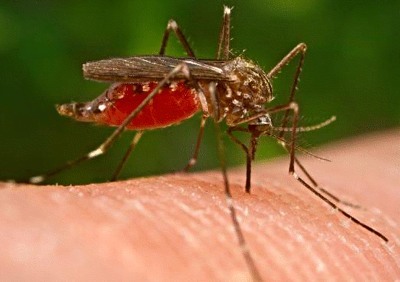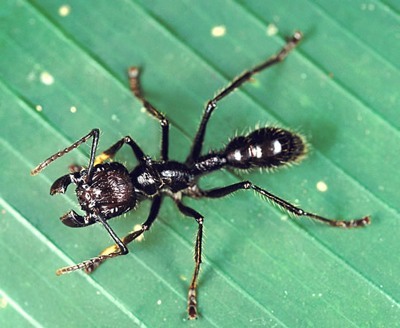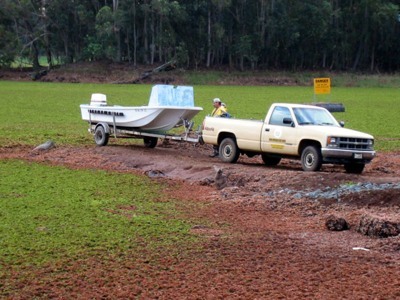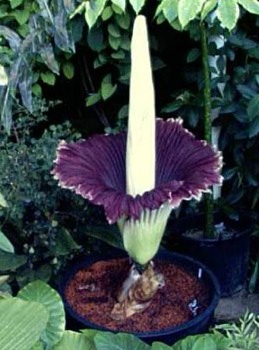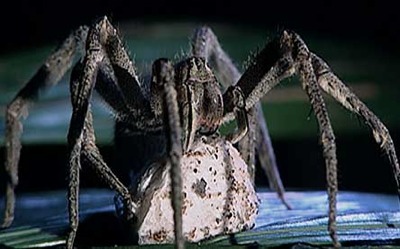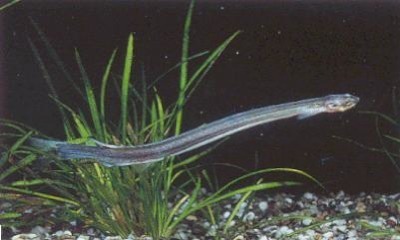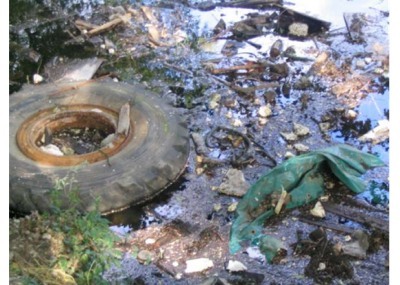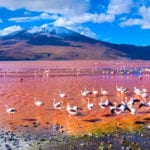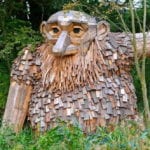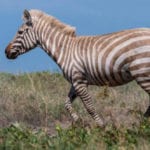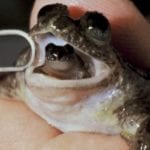 Weird Stuff
Weird Stuff  Weird Stuff
Weird Stuff  Weird Stuff
Weird Stuff The 10 Unluckiest Days from Around the World
 Food
Food 10 Modern Delicacies That Started as Poverty Rations
 Movies and TV
Movies and TV 10 Shared TV Universes You’ve Likely Forgotten About
 Weird Stuff
Weird Stuff 10 of History’s Greatest Pranks & Hoaxes
 Miscellaneous
Miscellaneous 10 LEGO Facts That Will Toy with Your Mind
 Misconceptions
Misconceptions 10 Widespread Historical Myths and the Texts That Started Them
 Crime
Crime 10 Incredible Big-Time Art Fraudsters
 Movies and TV
Movies and TV 10 Most Influential Fictional Objects in Cinema History
 Our World
Our World Top 10 Real Almost‑Cities That Never Materialized
 Weird Stuff
Weird Stuff Ten Bizarre Visions of 2026 from Fiction
 Weird Stuff
Weird Stuff The 10 Unluckiest Days from Around the World
 Food
Food 10 Modern Delicacies That Started as Poverty Rations
Who's Behind Listverse?

Jamie Frater
Head Editor
Jamie founded Listverse due to an insatiable desire to share fascinating, obscure, and bizarre facts. He has been a guest speaker on numerous national radio and television stations and is a five time published author.
More About Us Movies and TV
Movies and TV 10 Shared TV Universes You’ve Likely Forgotten About
 Weird Stuff
Weird Stuff 10 of History’s Greatest Pranks & Hoaxes
 Miscellaneous
Miscellaneous 10 LEGO Facts That Will Toy with Your Mind
 Misconceptions
Misconceptions 10 Widespread Historical Myths and the Texts That Started Them
 Crime
Crime 10 Incredible Big-Time Art Fraudsters
 Movies and TV
Movies and TV 10 Most Influential Fictional Objects in Cinema History
 Our World
Our World Top 10 Real Almost‑Cities That Never Materialized
Top 10 Worst Things In Nature
[WARNING: arachnophobes beware; this list contains an image of a spider.] Nature provides for almost all of our needs and it is as diverse as the stars in the sky. But there is a dark side too. Nature also contains some of the most awful things you can imagine – worse than anything conjured up by Stephen King! This list looks at ten of those things.
The honey badger is usually found in Africa and Western and Southern Asia. For a number of years the Guinness Book of Records has named it the “most fearless creature”. This animal (which looks deceptively cute) will attack virtually anything and it is smart enough to know its opponents weak spots. For example, when confronted by a human male, it will attack the testicles. This is also one of the few animals that uses tools – for example making use of logs as ladders. The honey badger loves honey and will dive right into a beehive with no regard to its own safety – which unfortunately often leads to its death. Honey Badgers can kill crocodiles, and are very efficient snake killers. It takes only 15 minutes for the animal to eat a 5 foot snake. The ferocity of these creatures is well known in nature and not even a leopard or lion will attempt to kill one.
There is no doubt that the mosquito has to be the worst insect in the world. Just as summer starts, the mosquitos come out in force ready to feast upon the pasty white legs of humans that have been locked inside for winter. At night as you lie in bed you can hear them buzzing but you can’t see them – and then next morning a huge welt appears on the tip of your nose because the mosquito chowed down on it. Oh – and it also happens to be the most deadly insect in the world because it spreads malaria – in fact, it is believed that half the human population that has died through history, died because of the female mosquito bite. God must have been pre-occupied the day he was creating the animals, because he didn’t notice Satan making the mosquito.
Fatal Familial Insomnia is a terrible disease found in only 28 families around the world. The disease prevents you from sleeping and no medication available can help you. When the disease begins, you generally have from 7 to 36 months of sleepless nights until you finally die. Wikipedia describes the stages of the disease thus:
1. The patient suffers increasing insomnia, resulting in panic attacks, paranoia, and phobias. This stage lasts for about four months.
2. Hallucinations and panic attacks become noticeable, continuing for about five months.
3. Complete inability to sleep is followed by rapid loss of weight. This lasts for about three months.
4. Dementia, where the patient becomes unresponsive or mute over the course of six months. This is the final progression of the disease, and the patient will subsequently die.
The bullet ant is ranked as having the most painful sting in the world – often likened to the pain of being shot, described thus: “waves of burning, throbbing, all-consuming pain that continues unabated for up to 24 hours”. The ant is found in Nicaragua south to Paraguay and, like other ants, they live in large colonies which are usually situated at the base of trees. The ants are used in an initiation rite for boys in the Satere-Mawe tribe of Brazil. The boys are made to wear a glove with hundreds of these ants attached – they must suffer the stings for 10 minutes and they must perform this ritual multiple times. The boys arm is usually paralyzed temporarily from the poison and their bodies can shake for days. You can watch the rite of passage on youtube – I don’t recommend it for the weak of heart.
Also known as kariba weed, the salvinia molesta plant is an aquatic fern from Brazil. It floats on top of water and doubles in size every few days. This usually results in lakes that become completely covered by a mat of the plant up to 24 inches high. The intrusive weed prevents sunlight from entering the water which, in turn, prevents animal and plant life from surviving. To make matters worse, you can’t kill the plant. If you break it into small pieces, each piece will spawn a new plant. In the US attempts have been made to remove it using cranes, but all it takes is one tiny piece to restart the whole growing process. It is now found around the world and causes havoc everywhere it goes. In the image above, what appears to be a nice lawn is actually an entire lake covered with salvinia molesta.
The corpse flower thrives in the grasslands bordering rain forests in Sumatra (though it is now found around the world in display gardens). It grows a single enormous flower which produces a smell that is remarkably similar to a rotting corpse (hence its name). The flower grows to over 10 feet wide and its coloring is designed to mimic the look of rotting meat – to help entice the carrion eating insects that pollinate it. The tip of the corpse flower is nearly the same temperature as the human body which probably helps to spread the stink and adds to the illusion that it is really rotten flesh. Here is an excellent youtube clip with David Attenborough presenting the corpse flower.
It is huge. It has one of the most painful bites in the spider world. It is the most deadly spider; forget the funnel web spider – this thing is dangerous. It has the highest human kill rate in the world. To make things even worse, a bite from this spider causes an erection that lasts for hours. No – this is not a subtle ad for viagra; it really is a side-effect of a wandering spider bite. Emergency room staff are able to immediately recognize a person suffering from a bite. Needless to say, the venom is being studied for possible medical uses for people suffering erectile disfunction. [Youtube Clip]
The Candiru is a small parasitic catfish which is found mostly in the Amazon river where it is the most feared fish – even more so than piranhas. The fish can grow to a maximum length of around six inches. Candiru feed on the blood of their host creatures by swimming into the gills and using razor sharp spines on its head to attach itself. It then chews its way through the host until it reaches a major artery and drinks blood until it is satiated. The fish finds its prey by sniffing the water and this is where it starts to get nasty: the smell of human urine appeals to candirus and they can find their way to a human penis or vagina under the water and enter it. When this happens, the fish attaches itself (causing great pain to the poor human) and it can generally only be removed through surgery. This is a very unpleasant situation to be in – so be warned: don’t pee in the Amazon river. You can watch a youtube clip about the candiru here. And if you are able to cope with disgusting images, check out the photo of a doctor removing a candiru from a man’s nether-regions.
First of all we need to get one thing clear – I am not a “greenie” or an “environmentalist” – but even a hard-hearted non-recycler like me can see how much damage man causes to nature. We pollute our waterways and air, we tear down whole forests, we flatten mountains, and we bury nuclear waste beneath the earth. Nature has every reason to hate us and perhaps that is in part the reason for the many plagues and pandemics that have struck our kind since time immemorial.
Botulinum toxin is produced by the bacterium Clostridium botulinum and it is, beyond a doubt, the deadliest known protein. If the clostridium botulinum spores find their way to food or wounds, they will begin to release the toxin which leads to poisoning if eaten. It is so deadly that a mere two pounds (roughly 1kg) of the stuff is enough to kill the entire human population. It is so deadly that it is potentially useful as a biological weapon. This is the kind of thing we obviously want to keep right away from right? Well, no. Millions of people have this deadly protein injected into their face every year; it is present in minute quantities in Botox which is used to “treat” wrinkles.
Contributor: JFrater
